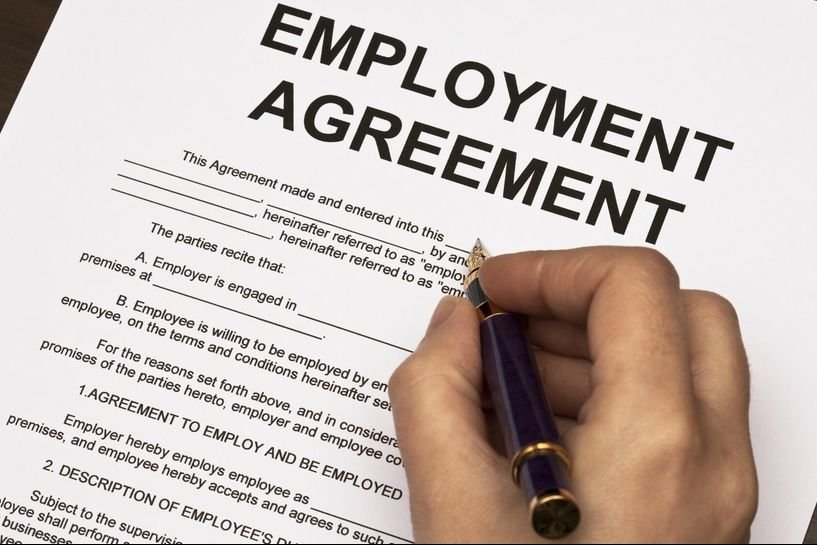The new UAE labour law is here: The changes you need to know

The UAE has issued Federal Law No.33 of 2021 which will take effect today and repeal the previous Federal Law No.8 of 1980 (current Labour Law).
Like its predecessor, the new labour law will apply to all companies and employees in the private sector within the UAE, including its free zones, barring Dubai International Financial Centre and the Abu Dhabi Global Market, which implement their own employment laws.
The new labour law brings in a number of unexpected changes, BuzZzing breaks it down for you.
Application
The new law applies to entities owned “in conjunction with the federal or local government” unless the entity’s constituent documents state otherwise.
Protection against discrimination
The law strictly prohibits discrimination against people specifically on the grounds of race, colour, sex, religion, origin, ethnicity or disability. But, it remains to be seen how this protection will be enforced.
Protection against harassment
It expressly prohibits any form of harassment, bullying, or any verbal, physical or mental violence against employees.
Equal pay for women
Much has been made of this being a new development, the concept of equal pay in the UAE is not new. Provisions requiring women to be paid the same as men undertaking work of equal value were actually introduced into the Current Labor Law in 2020.
Fixed-Term employment contracts
All employees on fixed-term employment contracts not exceeding three years may be extended for the same period. Employers will have 12 months from February 2, 2022, to transition all their employees onto new contracts.
Flexible working models
Employees may undertake full-time, part-time, temporary, or flexible work.
Template employment contracts for flexible working models.
Executive regulations will be issued containing template employment contracts for each of the new flexible working models. These templates are likely to be in the relatively straightforward dual-language format issued by the Ministry of Human Resources and Emiratization (MoHRE).
Termination by employer during probationary period
Employers may terminate employment during probationary period by giving 14 days’ written notice
Termination by employee during probationary period
Employees who may want to move to another employer in the UAE during their probationary period may terminate their employment by giving at least one month’s written notice. The new labor law states that, in this case, the employee’s new employer should compensate the old employer for recruitment costs.
Termination on notice
Either party may terminate the employment relationship for “good cause” by giving written notice.
Notice periods
The minimum notice periods are still 30 days but notice periods are capped at 90 days. This is likely to be an unwelcome development for employers that need to deal with departure, replacement and recruitment of senior executives, who typically have notice periods of six to 12 months.
Reasons for termination
The scenarios in which an employee’s employment may be terminated have been expanded to include the permanent closure of the employer, the bankruptcy of the employer and the failure of the employee to satisfy the requisite immigration requirements.
Suspension
Suspension of up to 30 days with half pay will be permitted to enable an employer to undertake a disciplinary investigation. However, an employee will be entitled to be reimbursed all pay that is withheld if the worker is ultimately cleared of any wrongdoing. We, therefore, anticipate that most employers will continue to suspend employees on full pay and benefits.
End-of-Service gratuity calculation
An employee’s end-of-service gratuity is stated to be calculated on the basis of working days, which would be a significant change.
In our view, this is likely to be an oversight that we hope will be addressed in the executive regulations. If the change was intentional, it will result in a significant increase in employer’s liability for end-of-service gratuity.
End-of-service gratuity on resignation
There is no reduction in end-of-service gratuity if an employee resigns.
End-of-service gratuity on summary dismissal
Employers do not have the right to withhold an employee’s end-of-service gratuity if the worker is summarily dismissed (that is, if employment is terminated immediately without notice). This is a significant development and reflects the approach adopted by the Dubai International Financial Centre in 2019.
Maternity pay and leave
Maternity pay is increased to 60 days (45 days’ full pay, 15 days’ half pay). There is no qualifying service requirement.
Employees will now be entitled to maternity leave and pay in the case of stillborn babies and new-born deaths.
Employees will be entitled to an additional unpaid leave of 45 days if they suffer a pregnancy-related illness. This period of leave will not be included when calculating the employee’s end-of-service gratuity.
Parental leave
Employees will be entitled to five days’ paid leave in the six months following the birth of their child. This leave will be in addition to an employee’s entitlement to maternity leave and there is no qualifying service requirement. Parental leave was introduced into the Current Labor Law in 2020.
Disability leave
Employees with babies who have disabilities may be entitled to an additional 60 days’ leave on full pay.
Compassionate leave
Employees will be entitled to five days’ paid leave for the death of their spouse and three days’ paid leave for the death of a parent, child, sibling, grandchild or grandparent. There is no qualifying service requirement.
Study leave
Employees with more than two years’ service may be entitled to 10 working days’ study leave, although the new labor law is silent on whether this leave will be paid or unpaid.
Sick pay during probation period
Employees will not be entitled to any paid sick leave during their probationary period.
Holiday
Employees will be required to take their holiday in the year it falls due, although it is unclear what will happen to that holiday if they don’t.
Holiday pay
Payment in lieu of holiday pay on the termination of employment is to be calculated using basic pay only.
Deductions
Deductions from wages of up to 50 per cent of the monthly wage will be permitted.
Overtime
Overtime will be capped at 144 hours in every three-week period and calculated according to basic salary only.
Overtime exemption
The overtime exemption that applies under the current labor law, for employees in a supervisory or managerial position, no longer applies, and the executive regulations will determine new exemptions. It is unclear how this requirement will interact with other UAE inheritance laws.
Resignation without notice
Employees will only be able to resign without giving notice if (i) in the case of an employer’s non-compliance with their obligations, the employee notifies the MoHRE 14 days before leaving and the employer fails to rectify the matter; and (ii) in the case of harassment or violence, the employee notifies the MoHRE within five working days of being able to do so.
Fines
Fines of up to Dh1,000,000 may be imposed for breaches of the new labor law, which may be multiplied in cases where numerous employees are affected.
Wow, that was a lot to go through. What new amendment stuck with you the most?








